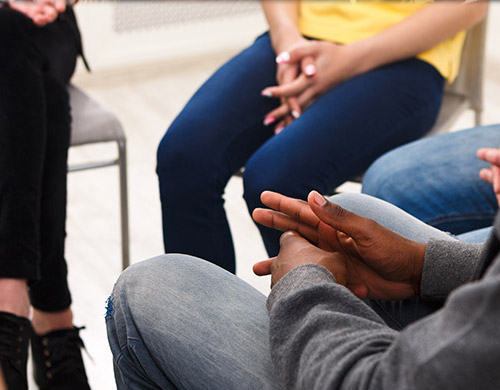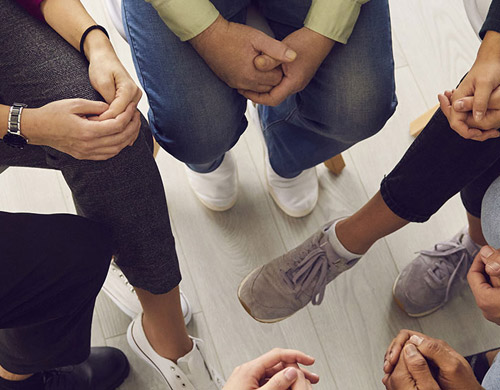Drug and alcohol addiction are difficult to address when they affect you or someone you care about. Through proven rehabilitation therapies, drug addiction & alcoholism can be treated for long-term recovery.
On this page we further explain how an integrated treatment program can enable you or a loved one to begin and sustain sober living.
What is Addiction Rehab (Rehabilitation)?
Addiction ‘rehab’ is a holistic treatment plan that encompasses both counseling and medical interventions to treat both legal and illegal substance dependencies. Rehab offers higher chances of long term success if it is customized to the individual needs of the client and incorporates medically-managed detoxification, inpatient or outpatient programs, and relapse prevention techniques in the form of aftercare.

Facts & Statistics about Addiction in Rohnert Park
Prevalence of Substance Use Disorder, by Drug Type
(IN THOUSANDS)
- 2,7578.5%Any Substance
- 2,0886.4%Alcohol
- 1,0683.3%Ilicit Drugs
- 2060.6%Pain Medication
Drug- and Alcohol-Induced Deaths by Age Group, California, 2016
- Alcohol-Induced
- Drug-Induced
- 18 to 250.5
- 9.6
- 26 to 354.3
- 13.9
- 36 to 6424.2
- 22.9
- 65+23.7
- 9.4
Drug Use, by Selected Type and Age Group California, 2015 to 2016
- 12 to 17
- 18 to 25
- 26+
- Marijuana*13.2%
- 34.0%
- 13.5%
- Misuse of Pain Medications3.5%
- 8.0%
- 4.3%
- Cocaine0.8%
- 7.2%
- 1.8%
- Heroin0%
- 0.4%
- 0.2%
What are the treatment options available in Rohnert Park?
Through integrating treatments, the primary causes of drug addiction can be explored and healed. Through learning healthy coping strategies you can address the causes of substance abuse while you treat the obvious symptoms of addiction.

Private Residential Programs
A residential treatment program requires you to live at the treatment facility and receive all your treatment at the property. Its key benefit is the ability to receive integrated treatment and support throughout the day.
By moving out of your comfort zone and into a treatment center, you can protect yourself from the those obvious triggers that are partly responsible for you developing a substance use disorder.
By choosing to stay in a controlled and supportive environment, you have a greater chance of successfully completing your addiction treatment program while avoiding relapse and its potential risks. A residential program provides the best solution when you have a dual diagnosis, an intense substance dependency or co-occurring disorders. Taking part in a residential rehab program is the most effective way to get sober, and sustaining it demands ongoing focus because maintaining recovery is difficult during the early stages. Once you have finished your residential program you must focus on becoming more independent and set new goals and challenges.
Do You Need Help?
Our admissions team is ready to answer your questions.

Sober Living Programs
Sober living treatment programs enable you to have more stability in your life, through guidance and supportive structures. These programs incorporate:
- A house manager to check in on you regularly
- Establishing guidelines for positive behavior in recovery
- Receiving support and companionship from other individuals who share similar challenges
Outpatient Programs
The flexible approach to outpatient treatment programs means that you do not have to stop attending your workplace or family commitments, as you can come to the rehabilitation center and have regular treatments in your own time.
Outpatient programs assist you with:
- Education around substance dependence
- Therapeutic support and counseling including group therapy or one-on-one interventions – The length of an outpatient treatment is customized to your needs and lasts between three months to over a year.
Detox Only Programs
Participating in a detoxification program is a vital step in rehab as it tackles your physical dependency by removing substances from your system. Withdrawal symptoms are the body’s normal response to detoxification, as it begins getting used to operating without drugs or alcohol.
This is just the beginning of the rehabilitation process, the next step is to confront and address the root reasons for your addiction, so that those same issues do not happen again. You may experience some cravings and withdrawal symptoms for some time after your detox phase has concluded. Rehab teaches you life-changing skills to take into your new life so that you do not relapse.
Paying for Private Treatment
The private treatment costs may be claimed back through your healthcare policy or paid with your own funds. In most cases, insurance companies will cover the costs of rehab, at least partially, including a drug or alcohol detox regime, treatment program, and aftercare programs. The extent of cover offered will depend on the fine print of your policy and your provider’s. Always determine the amount you can claim against your policy before you enroll in a treatment program.
To find out what you could be entitled to, please go to our Verify Your Insurance page here. If you do not claim from your insurance provider you must pay for your treatment programme. Some treatment facilities will provide payment plans to clients who can’t afford to pay the whole cost of treatment.
State Funded Programs
If you have fallen victim to substance dependence but have limited funds to fund private treatment, you should look for a state-funded rehabilitation program. Support can be offered with funds available from Medicaid and federal/state budgets, these programs can subsidize your recovery with:
- Services for a safe detox (medically-assisted if required.
- Rehab programs and aftercare support services
So that you can take part in a state-funded rehabilitation program you will need to give proof that you reside in a low income household or that you do not have health insurance:
- Where you live
- The amount you earn
- Evidence about your substance or alcohol misuse
- Living in the US legally
Click here to more about applying. You can also identify direct contact details for your state agency by clicking here.

The following state-funded addiction rehab programs are available in Rohnert Park:
Drug Abuse Alternatives Center (DAAC) Turning Point
440 Arrowood Drive, Santa Rosa, CA 95407
707-284-2950
www.daacinfo.orgMuir Wood Adolescent and Family Servs
1733 Skillman Lane, Petaluma, CA 94952
310-903-1155
muirwoodteen.comDrug Abuse Alternatives Center (DAAC) Turning Point Orenda Detox
1430 Neotomas Avenue, Santa Rosa, CA 95405
707-565-7460
www.daacinfo.org
Maintaining Addiction Recovery in Rohnert Park
Maintaining your recovery can feel difficult when you return to home life after leaving the treatment center. When you were in rehab the environment was controlled and you had support from professionals. Once you leave rehab there may be new triggers that put your coping skills to the test. If you experienced a severe dependency and have not developed a social structure to return to when you leave rehab, you may find long term recovery more of a challenge. Without the relevant support and aftercare to guide you in your new life, relapse is a real possibility.
The following AA/NA meetings are available in Rohnert Park:
EPISCOPAL CHURCH
Freedom Friday Group, Basic Text and Open:
1500 East Cotati Avenue, Rohnert Park, CA 94928
Friday: 2:00 pm
https://www.drugstrategies.org/AA - Just for Today Rohnert Park
Child-Friendly, Open and Wheelchair Access:
8517 Liman Way, Rohnert Park, CA, 94926
Saturday: 11:00 am – 12:00 pm
https://alcoholicsanonymous.com/North Bay Dog on the Roof Rohnert Park
Men, Open and Wheelchair Access:
8517 Liman Way, Rohnert Park, CA, 94926
Tuesday: 6:00 pm – 7:00 pm
https://alcoholicsanonymous.com/
Aftercare & Alumni Programs
By participating in an aftercare program you get extended rehab support when you go home. Unfortunately Relapse may occur in 60% of cases, and due mostly to the unpredictability of life outside of rehab, having aftercare is an integral part of your recovery journey. Once you are close to completing your rehab program, you will consider the treatment services most beneficial to you long-term, and a relapse prevention package will be created to help you sustain from drinking or taking drugs.
After you have completed your rehab program you will become eligible to join an alumni community program so you can stay close to staff and peers. You will be invited to attend team events, participate in various initiatives, build connections, and receive advice from other members who are also in recovery. We encourage you to consider offering guidance to other former clients within your network if you feel able to.
Support Groups (Fellowship Meetings)
Support groups remain a vital resource because they integrate social responsibility into addiction recovery. With the support of groups like Narcotics Anonymous or Alcoholics Anonymous, you will follow the principles of the 12 steps and attend near-by meetings for recovery support. At support group meetings, you can share and listen to experiences. Companionship, empowerment and taking responsibility for our actions are key to long-term recovery, and meetings provide many with the necessary tools to stay sober.

Support for Families & Children Affected by Addiction

Addiction affects everyone in a family to varying degrees. The person with the addiction needs help, but other members of the household also need help. Family support groups have two important benefits: you can support yourself and the individual with the addiction. Family members can benefit from participating in support groups such as:
- SMART Recovery Family & Friends
- Parents of Addicted Loved Ones
- NAMI Family Support Groups
- Al-Anon
- Families Anonymous
- Alateen
- Nar-Anon









